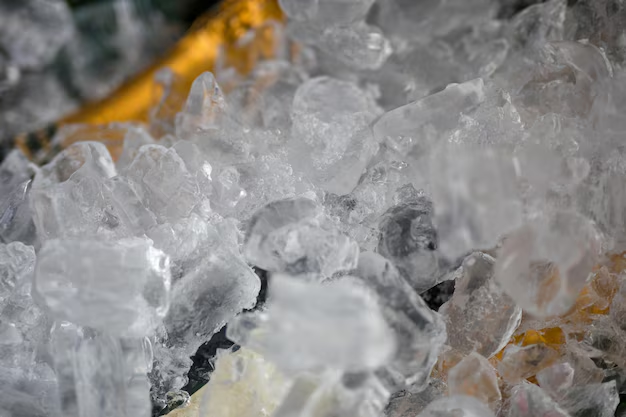Troubleshooting Your Refrigerator Ice: Why It Smells and Tastes Bad
Imagine reaching into your refrigerator for a refreshing drink on a hot day. You throw in some ice cubes from the freezer, take a sip, and — yuck! There’s an unpleasant odor and taste. Why does this happen? More importantly, how can you fix it? Ice cubes should be the least of your culinary worries, but when they start smelling and tasting bad, it’s time to investigate. In this article, we’ll explore the possible reasons behind this common annoyance and share steps you can take to restore the fresh, clean taste you expect from your ice.
Why Does Ice Smell and Taste Bad?
Contaminated Water Supply
The quality of your water supply is paramount. If the source of your tap water is questionable or contains high levels of minerals, pollutants, or even natural compounds, it could affect the taste and smell of your ice. Water may pick up odors from pipes or become contaminated over time, especially in rural or older urban areas.
Absorption of Odors in the Freezer
Believe it or not, ice is highly absorbent. It can soak up odors from food stored in your freezer. Do you have uncovered leftovers, strong-smelling foods like fish or spices? Over time, their smells can seep into your ice cubes.
Old Ice and Lack of Rotation
A buildup of old ice can lead to stale smells and tastes. If ice cubes sit too long, they begin to absorb the freezer’s odors and take on a bad taste. Regularly using and replacing ice ensures freshness.
Dirty Ice Maker Components
Dirt, mold, or limescale can accumulate in your ice maker over time. These contaminants don’t just harm your ice’s taste and smell — they might also impact the machine’s function. Regular maintenance is key to preventing such build-ups.
Practical Steps to Improve Ice Quality
Replace the Water Filter Regularly
Pro Tip: Check your refrigerator’s manual for recommended filter replacement frequency. Typically, every six months is a good benchmark, but it can vary based on usage and water quality.
Clean Your Ice Maker
- Turn off the ice maker before cleaning.
- Remove ice cubes and dump them if necessary.
- Use a mixture of warm water and vinegar or mild detergent to wipe down the ice tray and surrounding areas.
- Ensure everything is thoroughly dry before restarting the ice maker.
Seal and Store Food Properly
Keep your food well wrapped and use air-tight containers to prevent odors from escaping. Consider labeling leftovers with dates to track freshness better.
Monitor the Temperature
Ensure that your freezer is at the right temperature, usually at or slightly below 0°F (-18°C). Consistent correct temperatures prevent bacteria or mold growth, which can affect ice quality.
Regularly Discard Old Ice
Establish a routine to dispose of ice that's been sitting too long. Creating new ice batches will help maintain consistent freshness and taste.
Advanced Troubleshooting
Inspect the Water Lines
If water supply issues cause persistent problems, inspect your refrigerator’s water lines for blockages or damage. Mineral deposits could cause blockages. If needed, consult a professional for a thorough inspection, cleaning, or replacement.
Analyze Your Water Source
Option 1: Install a dedicated water filtration system for your home to improve overall water quality. Option 2: Test your tap water for contaminants or unusual mineral content.
Consider Ice Maker Replacement
Older ice makers might develop stubborn buildups or wear out mechanically, leading to persistent issues. If standard maintenance doesn’t solve the problem, it could be time for an upgrade.
Recap and Key Takeaways
Here’s a handy list to guide you on how to troubleshoot and resolve bad-smelling or tasting ice:
- 🔍 Inspect Water Source: Check your water quality and address common contamination issues.
- 🧼 Clean Ice Maker: Regular cleaning helps avoid bacteria buildup.
- 🔄 Rotate Ice: Regularly use and replace old ice to maintain freshness.
- 📦 Store Food Properly: Keep foods sealed tightly to prevent the transfer of odors.
- 💡 Maintain Equipment: Change filters and check mechanics to ensure efficient ice production.
- 👂 Listen for Noises: Odd noises from the ice maker can indicate the need for repairs or maintenance.
- 💧 Filter Quality: A good water filter can improve ice quality significantly.
- ⚡ Professional Help: Consult a technician if issues persist.
The Ripple Effect: Why Maintaining Ice Quality Matters
Dealing with unsavory ice isn’t just a matter of taste. It provides insight into your overall refrigerator maintenance practices and can indicate broader issues that need attention. By taking a proactive approach, you improve your ice quality, extend the life of your refrigerator, and ensure that you and your family enjoy the best-tasting and safest water every day.
Maintaining your refrigerator and its components ensures a better tasting ice experience and contributes to your kitchen's overall efficiency and safety. Pay attention to these small yet crucial details, and you’ll quickly notice the difference in everything from iced drinks to meal prep. With clean, pleasant ice, your kitchen will maintain its reputation as a place of refreshment and enjoyment.

